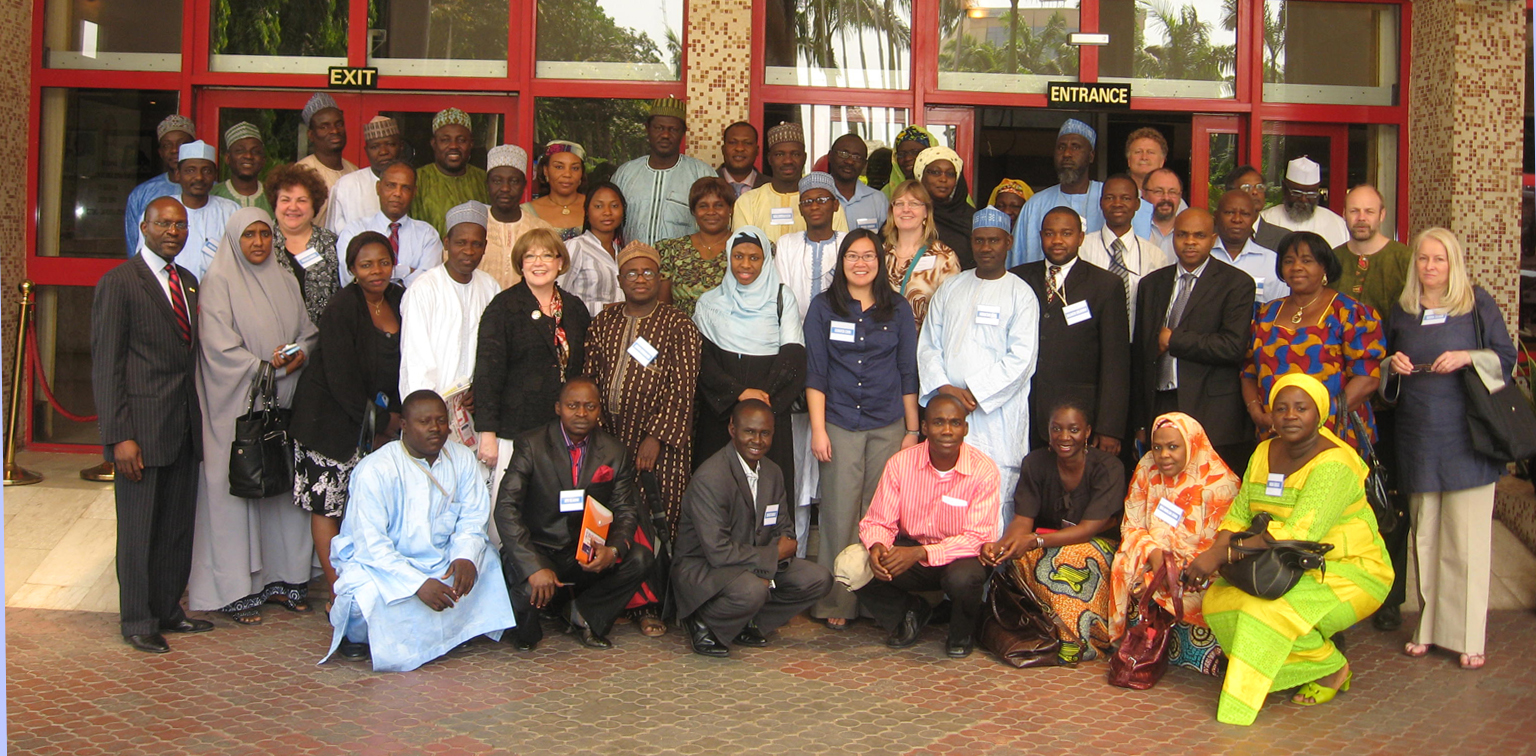NIGERIA:
Project Launch Called “Exemplary” by USAID OfficerMarch 12, 2010

In attendance were representatives from each of the implementing partners—Creative, RTI, JHU/CCP—and Nigieria’s Federal and State ministries of education, including State Ministries of Women’s Affairs, State Ministries of Religious affairs and USAID-Nigeria.
The USAID-funded Nigeria Northern Education Initiative (NEI) launched its first work planning session in Abuja on February 1, 2010. Speaking of the 5-day planning session, the USAID Nigeria Education Team Leader Dr. Sandy Olesksy-Ojikutu noted, “It is just this attention to programmatic details that has brought Creative Associates to the forefront of development work.”
“The Work Planning process for the NEI was quite an experience—the best I’ve seen in my 21 years with USAID! The logical progression and sequence of the week’s events unfolded gently, purposefully—engaging participants in ever increasing levels of participation and ownership. Exemplary!” added Olesksy-Ojikutu of the planning session that was led by Creative project director Semere Solomon.
The project will strengthen state and local government capacity to deliver basic education services by addressing key education management, sustainability and oversight skills. NEI will also increase the access of orphans and vulnerable children to basic education and services such as health information and counseling in Nigeria’s two northern states of Bauchi and Sokoto.
The choice of Bauchi and Sokoto presents an opportunity to make a difference in partnership with state and local governments and non-governmental agencies. Nigerian authorities recognize the need to address low education, health, gender equity, economic indicators, and drop-out and repetition rates among students that exceed the national average in Bauchi and Sokoto. Teaching conditions are more difficult, with pupil-teacher ratios of 93:1 in Bauchi and 60:1 in Sokoto. Nationally, the rate is 42:1. Similarly, the percentage of National College of Education-qualified teachers in basic education is only 26 percent in Bauchi and 42 percent in Sokoto, compared to 62 percent nationally. The number of orphaned and vulnerable children, including boys leaving home, remains high in the north, and systems for identifying and supporting them are only beginning to develop.
Under USAID’s leadership, Creative will partner with Nigerian local and state agencies to reinforce their role in delivering quality basic education services and also helping orphaned and vulnerable children integrate into the mainstream. In keeping with Creative’s community-based approach, the Northern Education Initiative will establish Community Coalitions to support vulnerable children through “compassionate communities” of established networks and institutions. Teams will track the children’s progress in school and ensure they have access to all available programs on an ongoing basis to prevent them from “falling through the cracks.”
“NEI as a contract will benefit from close collaboration with USAID—a positive partnership, I believe. I enjoyed being part of the process—and learned, too. How I wish the NEI Work Planning process was “standard” for all our Work Plan development activities,” said Olesksy-Ojikutu.
